“Shared Cities”
From Berlin to Belgrade
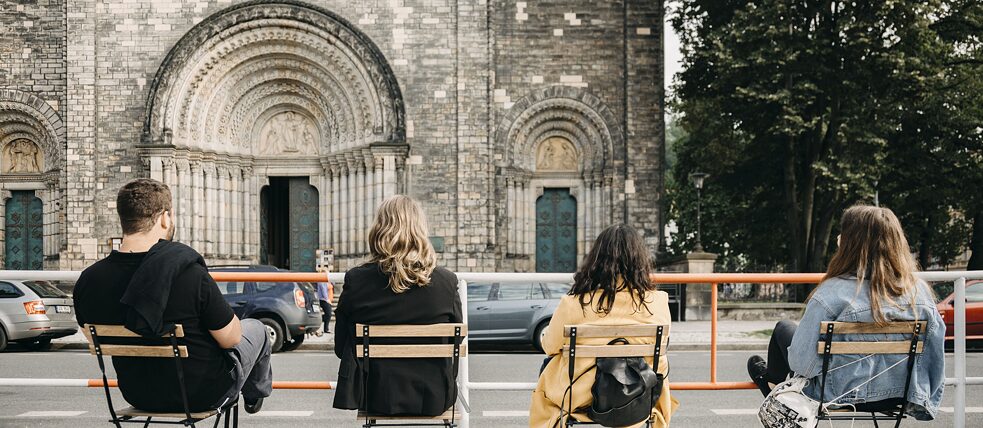
Human population is constantly increasing, and with its rapid growth meets many challenges on the way. How can we prepare and adapt in time? Can we increase the quality of life by sharing the living space? The Finale of the international project “Shared Cities: Creative Momentum”, coordinated by the Goethe-Institut, has tackled these questions in Prague.
By Monika Husar
“Shared Cities: Creative Momentum” is a four-year long cultural project of eleven partners from seven cities of central and southeast Europe – Berlin, Prague, Bratislava, Katowice, Warsaw, Budapest and Belgrade. It presents the creative discourse at the intersection of architecture, art, urban planning and the sharing economy with the aim of contributing to the transformation of urban space. Co-funded by the Creative Europe Programme of the European Union and coordinated by the Goethe-Institut in Prague, the project aims to improve living conditions in European cities through the connection of different aspects of culture of sharing and urban design.
Using cities more efficiently
The Academy of Fine Arts and Design in Bratislava has found new strategies for revitalising buildings from socialist times. The second partner in Bratislava, the Old Market Hall Alliance, developed a new image for the biggest town square in the city. The teams from Budapest, Hungarian Contemporary Architecture Centre – KÉK and Mindspace, created concepts in which NGO's would share government with politicians.
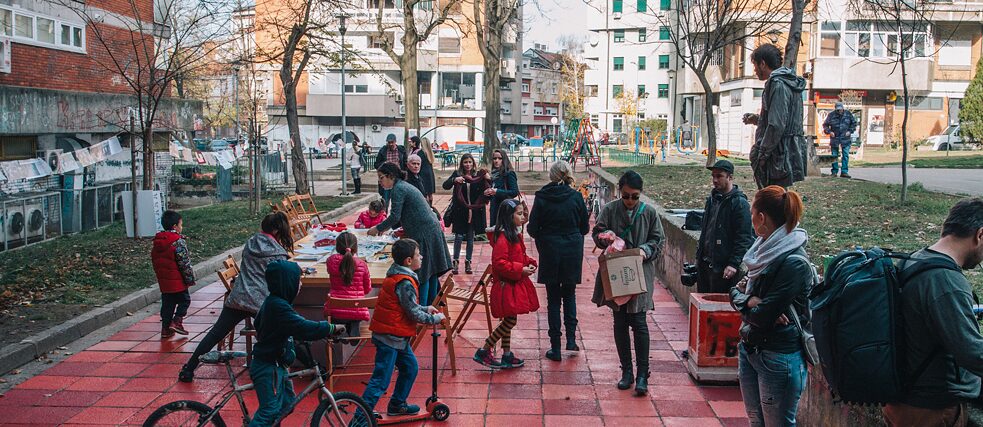 Insight into the BINA project in Belgrade | Photo: Cuvari Parka
Insight into the BINA project in Belgrade | Photo: Cuvari Parka
Exchange and community
The Serbian partner Belgrade International Architecture Week – BINA, developed a participatory project of collaboration with the local community on improving the common public space. These “Urban Hubs” are designed as places of gathering, exchange and constitution of the community around issues of common interest.
Tatjana Vukosavljević, project coordinator from Serbia, explained: “The main objective was to develop the necessary infrastructure in order to enable permanent cooperation of citizens. We recognised the great enthusiasm of all citizens, which, no matter where they work and which group they belong to, take part in thinking about the shared common space.”
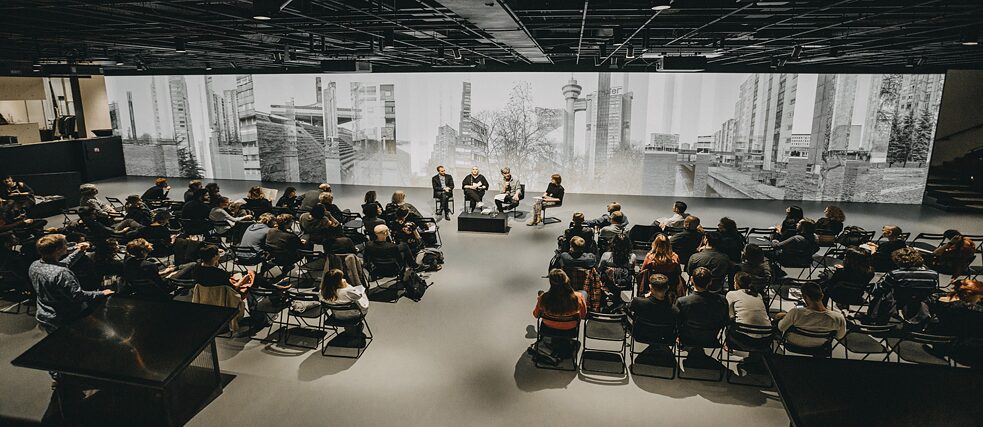 At the "Shared Cities" finale in Prague | Photo: Jakub-Červenka
At the "Shared Cities" finale in Prague | Photo: Jakub-Červenka
The Finale in Prague
With the Finale at the beginning of October and with gathering of representatives of all partners, the activities of the project “Shared Cities: Creative Momentum” have been concluded. The closing of the programme included the launch of the publication, premiere of the performance, public presentations of local projects, and competent lectures and panels. The motto of the Finale reflected the idea of the project: sharing of knowledge, experiences and information with the interested public.
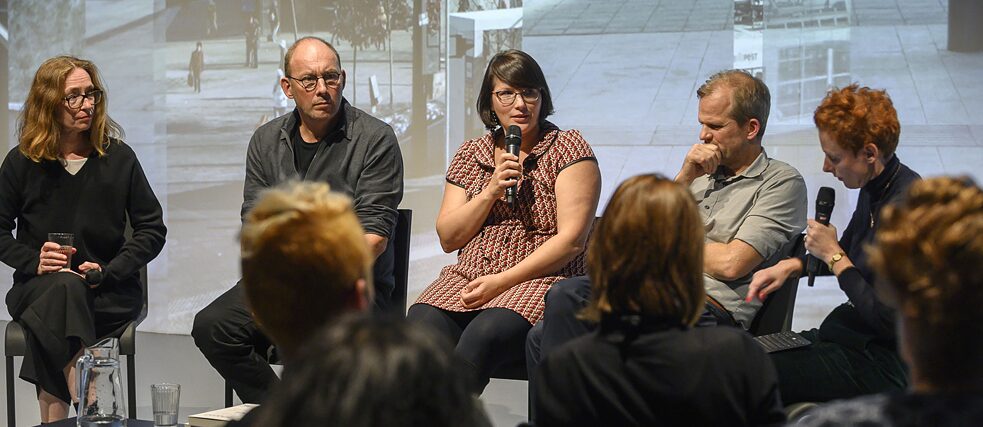 Experts at the panel discussion | Photo: Petra Hajská
Experts at the panel discussion | Photo: Petra Hajská
Virtual Ritual
During the Finale, the performance “Virtual Ritual” was premiered. It shows the number of possibilities that a player has in a virtual world, and the limit of choices that we make in the real, physical urban space. “Virtual Ritual” takes its spectators on a journey through parallel worlds of online video games, where virtual cities are being built – temporary playgrounds in which the players enjoy and live without meeting the challenges of real life.
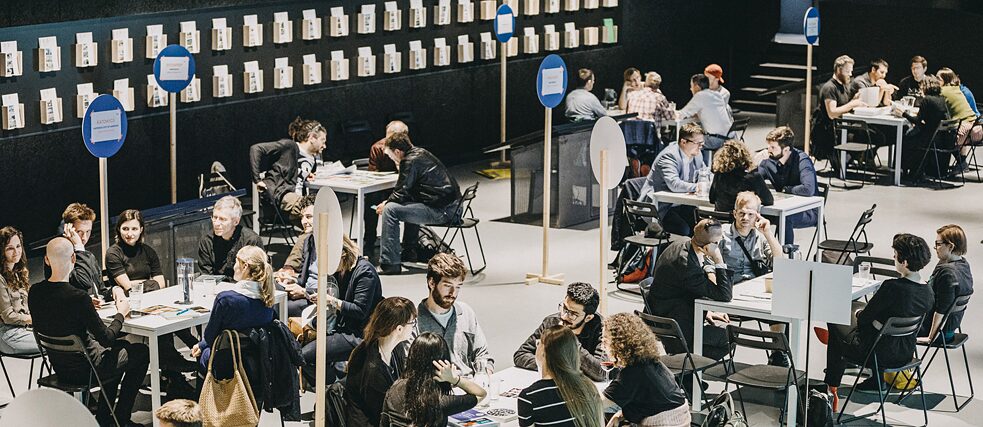 Participants at the exchange in Prague | Photo: Jakub-Červenka
Participants at the exchange in Prague | Photo: Jakub-Červenka
Atlas of Post-Socialist Cities
Also the “Shared Cities Atlas – Post-Socialist Cities and Active Citizenship in Central Europe” was launched. By mapping the local initiatives of “sharing” knowledge and experiences of the community, these case studies bring insights into the new, creative forms of exchange in the area of architecture, science, culture and collective experience and history. The editor of the publication Helena Doudová explained: “The idea was to answer the question “What is Central Europe today?” Beyond geography itself, or that old postulate, which imposes the division between the East and West, so that we can provide insight into the collective inheritance, which is not purely historic.”
The text is an abbreviated version. It was published on 24 October 2019 in Novi Magazine.